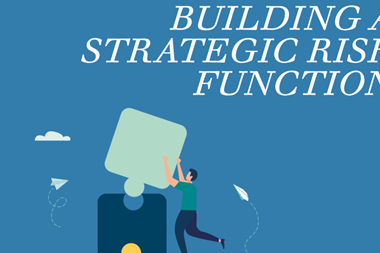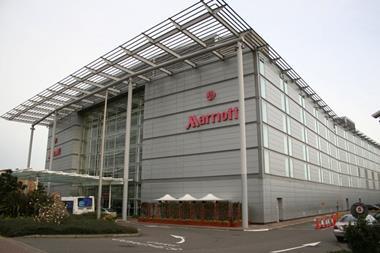’Once-in-a-generation opportunity’ to lead the marketplace in delivering innovative services and solutions, argues Lloyd’s head
Lloyd’s must seize the opportunity for “once in a generation” digital transformation or risk being irrelevant, chief executive John Neal has warned.
Neal was speaking to delegates at the Marsh and McLennan Companies Rising Professionals’ Global Forum 2019 on 12 June in London.
“We’re facing quite challenging headwinds. Our products simply aren’t keeping up with the changing landscape of risks and we’re not harnessing all of the new capital that’s knocking on the door.”
He added that the cost of doing business at Lloyd’s remained punitively high. “For every $100 (£79) the customer pays us, the best value they get back is $60 (£47). I can’t think of an industry outside of our own where that would be tolerated.”
He explained that the choice at hand is a “once-in-a-generation opportunity” to lead the marketplace in delivering innovative services and solutions, and that this can be done by leveraging and seizing the spirit of innovation that’s always been at the centre of the market as well as the relationship between the customer, broker and insurer.
It follows a report looking into the risks and opportunities around Artificial Intelligence (AI) and robotics by Lloyd’s.
On another note, a recent KPMG report that revealed the insurance industry could lose out on one in every five jobs to robots and automation. Insurance decision makers predicted that 20% of jobs would be lost over the next five years.
Talent shortage
He explained that the insurance industry is facing a talent crisis amid increasing dominance of the tech sector and that it is not yet seen as the “desirable industry” for young bright minds.
“We need to ensure that inappropriate attitudes are eradicated and give everyone the chance of a rewarding career,” he added.
Amazon
Using Amazon as an example, Neal said the digital platform’s customer-centric approach and ability to reinvent itself were “key ingredients” behinds its growth from a start-up in a Seattle garage in 1994 to being worth $767bn (£605bn) today.
He said Lloyd’s has a good base upon which to launch its digital transformation if it could just leverage these attributes combined with its own unique characteristics.
Neal stated that change needs to happen fast with some “quick wins” and “off-the-shelf-plug-and-play solutions” being an essential part of the strategy.
“We need to reset the way in which insurance and reinsurance is transacted globally. Lloyd’s has always been a platform – a marketplace where brokers, underwriters and capital have come together to create and exchange value by exchanging risk, ultimately for the benefit of our customers. The building blocks are in place. Now we have the challenge of unlocking and evolving a 330-year-old platform,” he added.
Vision
Neal’s vision of the ecosystem is one that is “altruistic by design” including an open architecture of interconnected platforms and services. The solutions which are currently being developed include a Lloyd’s risk exchange for less complex risks and a next-generation claims service powered by artificial intelligence
“Our expectation is that all the components of change agenda will be operational in some capacity by 2020,” he said.
“We’ve got to build at speed with solutions that are adaptable and scalable. We want a collaborative expert community that improves underwriting and provides consistently excellent products and services.
“For capital, it means making it easier and less expensive to attach to risk. For brokers, it means the value proposition of being part of the Lloyd’s ecosystem creates accelerated growth opportunities and that ultimately creates true and unique value for customers.”
Bedfellows
Neal acknowledged that both speed and change had not always been easy bedfellows at Lloyd’s.
“Our survival hasn’t yet been threatened in the way it has been in some other industries, such as retail, and when the platform isn’t burning, proactive change is just more difficult.”
He concluded that, as a sector, “our choice is to continue with business as usual and become irrelevant or change and realise an enormous opportunity in the world of risk”.




















No comments yet